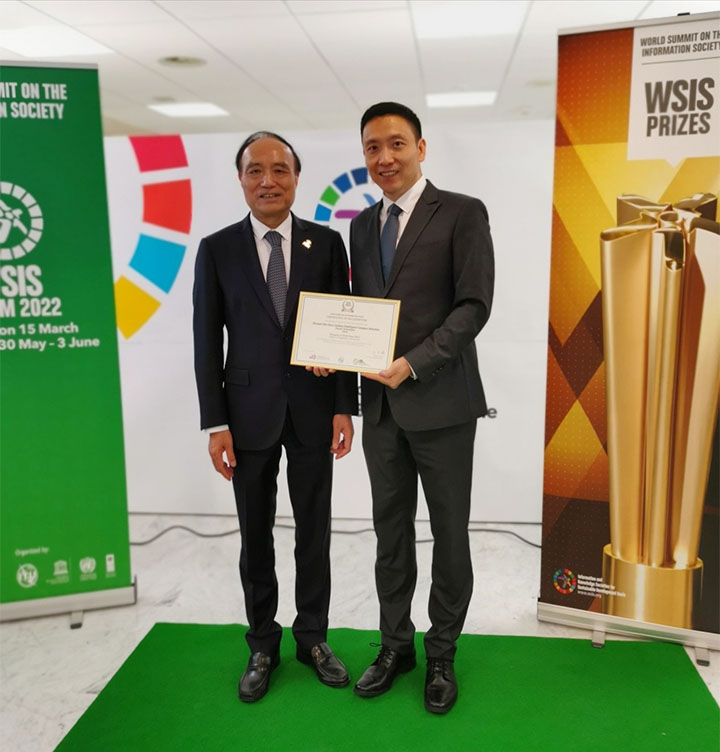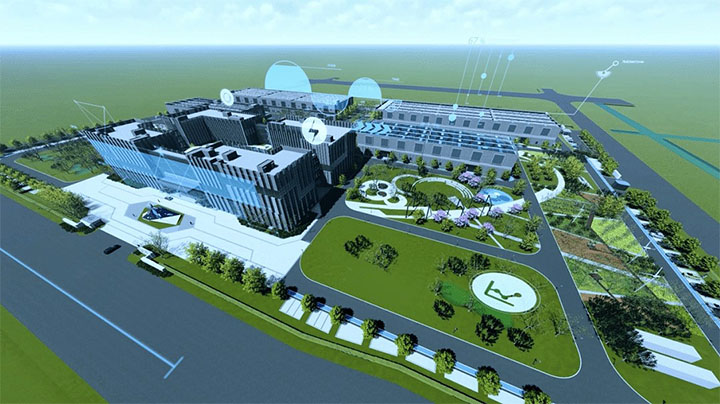Este sitio utiliza cookies. Si continúa navegando en este sitio, acepta nuestro uso de cookies. Lea nuestra política de privacidad>
![]()
Este sitio utiliza cookies. Si continúa navegando en este sitio, acepta nuestro uso de cookies. Lea nuestra política de privacidad>
![]()
Productos, soluciones y servicios empresariales
[Geneva, Switzerland, June 1, 2022] Huawei has been named a World Summit on the Information Society (WSIS) 2022 Prizes Champion at the WSIS 2022 Forum's Prizes Ceremony in Geneva for its use of their intelligent net-zero carbon campus solution at the Yancheng Low-carbon & Smart Energy Industrial Park project. A total of 996 projects were considered for this award, and the selection process took five months.

Houlin Zhao, Secretary-General of the International Telecommunication Union (ITU), presented Huawei with the WSIS Prize 2022 Champion
WSIS is the world's largest annual gathering of the ICT for development community. The event aimed at advancing global sustainable development goals is co-organized by the ITU, the United Nations Educational, Scientific and Cultural Organization (UNESCO), the United Nations Development Programme (UNDP), and other UN organizations and WSIS action plan facilitators. The WSIS Prizes contest awards prizes for outstanding sustainability projects in 18 categories, including information and communication infrastructure, E-government, E-environment, E-health, and E-agriculture. Huawei's intelligent net-zero carbon campus solution was nominated for this year's environment category.

Yancheng Low-carbon & Smart Energy Industrial Park
The Yancheng Park project was jointly developed by Huawei and the Yancheng Power Supply Company, a subsidary of the State Grid Corporation of China and uses the triple-dimensional model for energy transformation, decarbonization, and digital transformation. By focusing on the three scenarios of smart energy management, carbon management, and campus management, this project delivers real-time monitoring of energy equipment, strong carbon emission management, intelligent and convenient access control management, and intelligent and coordinated micro-grid control. The campus is powered by complementary energy sources and integrates its energy consumption system with on-campus terminals. The project is a showcase of an intelligent and low-carbon campus that contributes to a green, low-carbon, safe, and efficient modern energy system.